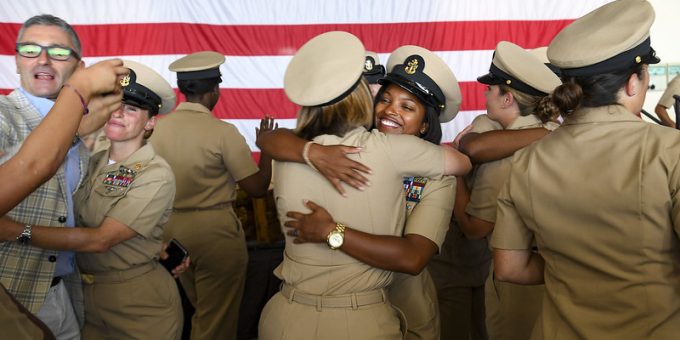
Women in the military and other hypermasculine institutions face a tough climb. Photo: US Gov't work, public domain.
anchored in hypermasculine orgs
In a recent American Sociological Review article, Stephanie Bonnes asks what perpetuates organizational cultures of violence and misogyny. Drawing on in-depth interviews with 50 U.S. servicewomen, the author finds that chronic harassment and sexual assault in the hypermasculine space of the U.S. military, in addition to many other harms, degrade service-women’s identities as military insiders and severely limit their options for doing gender and career success.
For instance, the services’ hypermasculine climates push servicewomen to hide what Bonnes terms femininity anchors, as they seem to invite negative interactions. Pregnancy, she shows, seems to invite non-sexual and bureaucratic harassment, while having open heterosexual relationships with fellow service members can provoke harassment and assault. Further, femininity anchors appear to “sink” women’s military careers by undermining their belongingness in relation to the masculine norm.
Hypermasculine cultures are known to circumscribe women’s gains and successes. The military is, admittedly, an extreme example, yet femininity anchors exist in all male-dominated organizations and industries. Women’s management of them—including their attempts to untether from femininity anchors to keep safe or advance—unfortunately also contributes to the continued broad gender segregation of sectors such as construction, policing, and technology.
